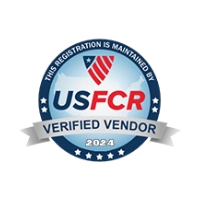
In 2024, for every dollar donated, CLA provided $7 worth of free legal services to the community. Join us to expand the amount of free legal help we can provide by donating today.
The health of the Chesapeake Bay watershed and its communities relies on strong environmental laws, agency enforcement of those laws, and the public’s right to intervene where the government fails to do so. Yet, despite being granted such authority, most public advocates working to protect and restore the Bay lack the resources to hire legal counsel to exercise this right. It is within this gap that CLA works to provide free legal services to community members and partner organizations.





Whether you are single, married, raising a family, or planning for or enjoying retirement, your financial security and that of your loved ones will be affected by the plans you make for your estate. See how you can protect the Bay and its watershed, and enhance your financial well-being and that of those you care about most.
With any of the options below, you can make meaningful gifts while you also provide a tribute to a loved one. There may be no better way to honor a loved one or their memory! These types of gifts can be particularly thoughtful on Mother’s Day, Father’s Day, upon the birth of a child or grandchild, on a birthday, or a wedding anniversary.

Are you looking for another way to support CLA? A gift of stock and/or securities is an option. A stock gift can allow you to increase your donation by removing tax liability from your portfolio. And it’s easy! The fastest way to make this type of gift is through an electronic transfer.
Donating stocks and securities is a smart and impactful way to support our mission. When you transfer appreciated assets directly, you can avoid capital gains taxes and make a bigger difference with your gift. It’s a win-win! Your donation goes further, and you help us protect the Chesapeake Bay and its communities for generations to come. Gifts can be made easily through an electronic transfer—just ask your broker to get started.
Chesapeake Legal Alliance
Vanguard
26517490
0062
Often, these gifts arrive without donor information. Therefore, when making your gift, please advise CLA’s Development Coordinator, Haley Capone, of your donation. This helps us provide you with a correct and timely tax receipt—and gives us an opportunity to say, THANK YOU!
You can email Haley at haley@chesapeakelegal.org or phone her at (410) 216-9441. Please provide her with the following information:
Date of your gift transfer
Name of transferring institution
Donor name and address (for tax receipt purposes). Email and phone number are appreciated, but not required.
Information, on this page, covers general gift-planning topics and is not intended as accounting, legal, or other professional advice. For assistance in planning charitable gifts with tax and other financial implications, you should obtain the services of appropriate advisors. Consult your attorney for advice when your plans involve the revision of a will or other legal document. Tax deductions vary based on applicable federal discount rates, which change often.